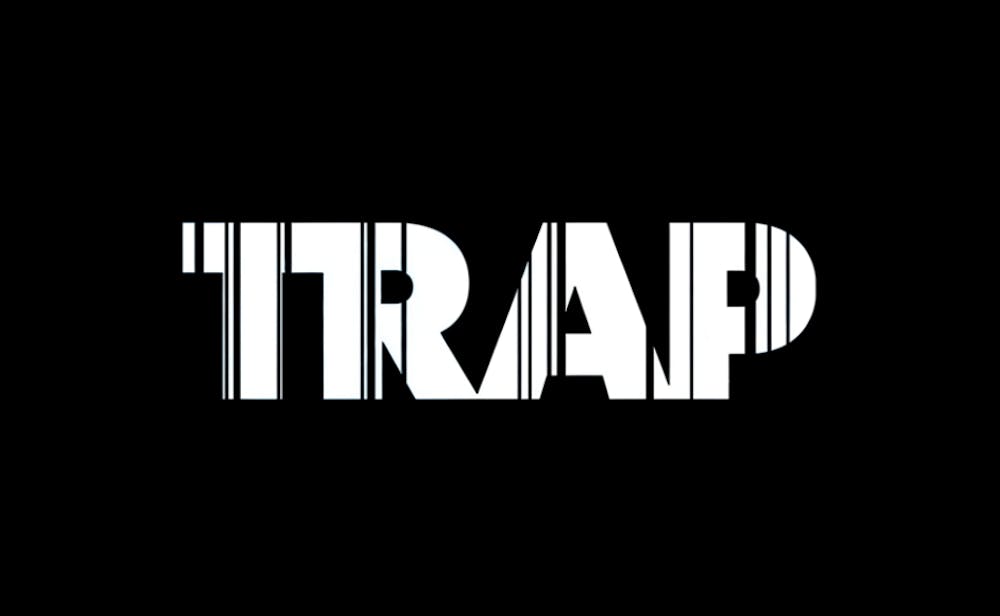After becoming a household name with “The Sixth Sense,” director M. Night Shyamalan has seen both blockbuster triumphs and failures. Despite receiving criticism from the film world for a reliance on twist endings and unnatural, awkward dialogue, Shyamalan continues to forge ahead with a string of self-financed films. His newest film, “Trap,” continues his decade-long trend of consistently entertaining, empathetic and expertly shot thrillers.
“Trap” wastes no time introducing you to the two lives of Cooper Adams, played by Josh Hartnett. On one hand, he is a father being the best ‘girl dad’ he can. Adams takes his daughter Riley, played by Australian actress Ariel Donoghue, to a concert headlined by her favorite popstar, Lady Raven, played by Saleka Shyamalan — Shyamalan’s daughter and a real-life R&B singer.
On the other, he’s The Butcher, a serial killer who slices up his victims like animals, and who law enforcement have conveniently discovered is attending Lady Raven’s show. Hordes of fully armed SWAT agents enter the arena, leaving Cooper left trying to find a way to escape the trap that’s been set for him while simultaneously giving Riley a father-daughter experience to remember forever.
The cat-and-mouse film takes viewers on a journey from the perspective of the mouse, as the camera hardly strays from shots of Harnett’s face and whatever is in his line of sight. Shyamalan and Sayombhu Mukdeeprom, the film’s director of photography, constantly experiment with how they position the camera, giving new views of Hartnett’s internal dilemma from external perspectives.
Extreme close ups are used liberally, and by the end of the film, the audience is left intimately familiar with Cooper’s facial peculiarities — a subtle twitch in his lip here and a widening of the eyes there. In a sense, the camera work makes Hartnett inescapable — we are trapped with him in every shot, which only adds to the tension of the viewer’s empathy towards him as a father, but also their fear and hatred towards him as a murder.
A prime example of expert cinematography in the film takes place during one of the extended concert sequences. Screams of Lady Raven’s fangirls eerily accompany Hartnett’s stone cold and silently furious face as it basks in the red glow of the stadium lights.
Scenes like this one bring the aforementioned tension to its apex — the two lives Hartnett has worked so hard to keep separate have finally intersected, and viewers feel a similar sense of tension. It is not clear whether the audience should hope that Cooper the father gets to keep making memories with his daughter or if they should root for Cooper The Butcher to finally be caught by the police.
Cooper’s relationship and interactions with the very people trying to catch him are a good chunk of what makes “Trap” so purely entertaining. His increasingly ridiculous distractions and near-impossible escapes veer more and more towards plain absurdity as the film progresses.
The most memorable one is when Shyamalan himself — in one of his trademark self-inserted cameos — playing an usher who happens to be Lady Raven’s uncle, manages to finesse Riley an appearance onstage with the popstar, unknowingly giving The Butcher a potential escape path backstage.
Shyamalan’s appearance in this role feels self-aware and intentional. He knows as a director that these situations are completely contrived, but at the end of the day, they are the key to what makes the movie so fun. His role as Lady Raven’s uncle in the film highlights that a good chunk of the movie is simply egregious nepotism in the form of his daughter performing a concert — something that he has no problem freely admitting.
Shyamalan is not ashamed of the cheesy dialogue he has been frequently criticized for in the past in “Trap.” Instead, it works to the film’s benefit, giving it the charm and humor of an elevated B-movie. Hartnett does brilliant work with Shyamalan’s script, switching on a dime between The Butcher and the dad-next-door in hilarious and terrifying fashion.
At the end of the day, “Trap” is still another Shyamalan movie about how parent-child relationships impact people, but his willingness to authentically be himself made the film a welcomed deferral from the remakes and legacy sequels filling up modern Hollywood.
In a June interview with Empire, Shyamalan shared this insistence on originality, exclaiming that it is what's at the heart of a story like “Trap.”
“Look, I know there’s safety in [intellectual property]. But it’s really important that we come to the movies and see something we’ve never seen before,” Shyamalan said.
Those who still think all his movies have stupid twists and clunky, alien dialogue, will most likely abhor “Trap.” But for those who remember that he is in on the joke too, “Trap” is an extremely fun hour and 45 minutes at the movies.







